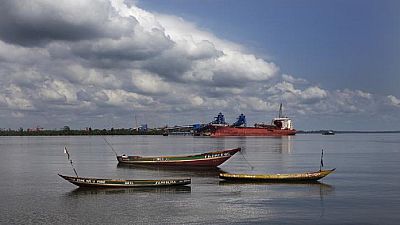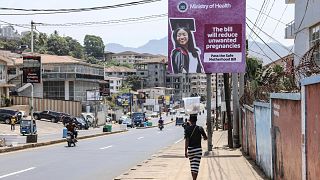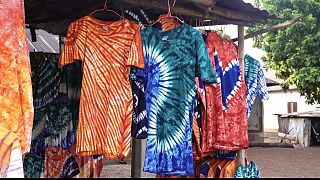Sierra Leone
Authorities in Sierra Leone on Monday started implementing a one-month ban on fishing in the country’s territorial waters, in addition to halting of exports by major fishing companies, in a bid to shore up stocks.
The government also decreed an April 1-30 halt to exports by major fishing companies “to protect our fish stock from depletion”, said a statement from the fisheries ministry.
“All industrial fishing companies should stock their fish in cold rooms … during the period of closure,” Minister of Fisheries Emma Kowa Jalloh told AFP.
How serious is the problem?
The West African states of Mauritania, Senegal, Gambia, Guinea-Bissau, Guinea and Sierra Leone lost about $2.3 billion (more than 2.1 billion euros) a year from 2010 to 2016 due to illegal and undeclared fishing, according to the Greenpeace environmental group.
Many coastal communities in Sierra Leone depend on fishing for food and their livelihood, said Steve Trent, executive director at Environmental Justice Foundation (EJF).
“We applaud the ban but the long answer is for legal, equitable and sustainable fishing industry management to be introduced.”
“We are working towards helping Sierra Leone with surveillance boats and regulatory framework for sustainable fishing methods,” Trent said.
Who is to blame?
Sierra Leone National Fishermen Consortium chairman Alpha Sheku Kamara accused China and Korea of destroying stocks.
“We are happy that the government has declared fishing period closure after series of complaints,” he told AFP at the bustling Tombo fishing community outside the capital Freetown.
“Industrial fishing boats from China and Korea are destroying our nets and also depleting the fish stock,” he said.
“We are calling on the government to effectively enforce the ban with surveillance.”
Illegal fishing accounts for about 30 percent of catches by industrial foreign fleets in Sierra Leone, according to the 2017 Sea Around Us project at the University of British Columbia, the University of California at Berkeley and five other organisations.
It found that in the past decade industrial foreign vessels have increased illegal activities off Sierra Leone either on their own or by enticing small-scale fishers into illicit partnerships.
Reduced monitoring and surveillance resulting from the withdrawal of development aid encouraged unlicensed operations, researchers said, noting an estimated 42,000 tonnes caught by illegal fishing in 2015.
A representative of a large Chinese fishing company in Sierra Leone declined to comment to AFP.
AFP














Go to video
Ties between China and Kenya "upgraded to a new level", say leaders during Ruto's state visit
Go to video
Kenya: President Ruto arrives in China for four-day state visit
01:27
China's exports jump 12.4% and imports fell as Trump pushed US tariffs higher
Go to video
Trump backs down on most tariffs for 90 days but raises Chinese imports to 125%
Go to video
US tariffs threaten South African industries, undermine livelihoods
00:58
China vows to 'Fight to the End' as trade war with U.S. escalates